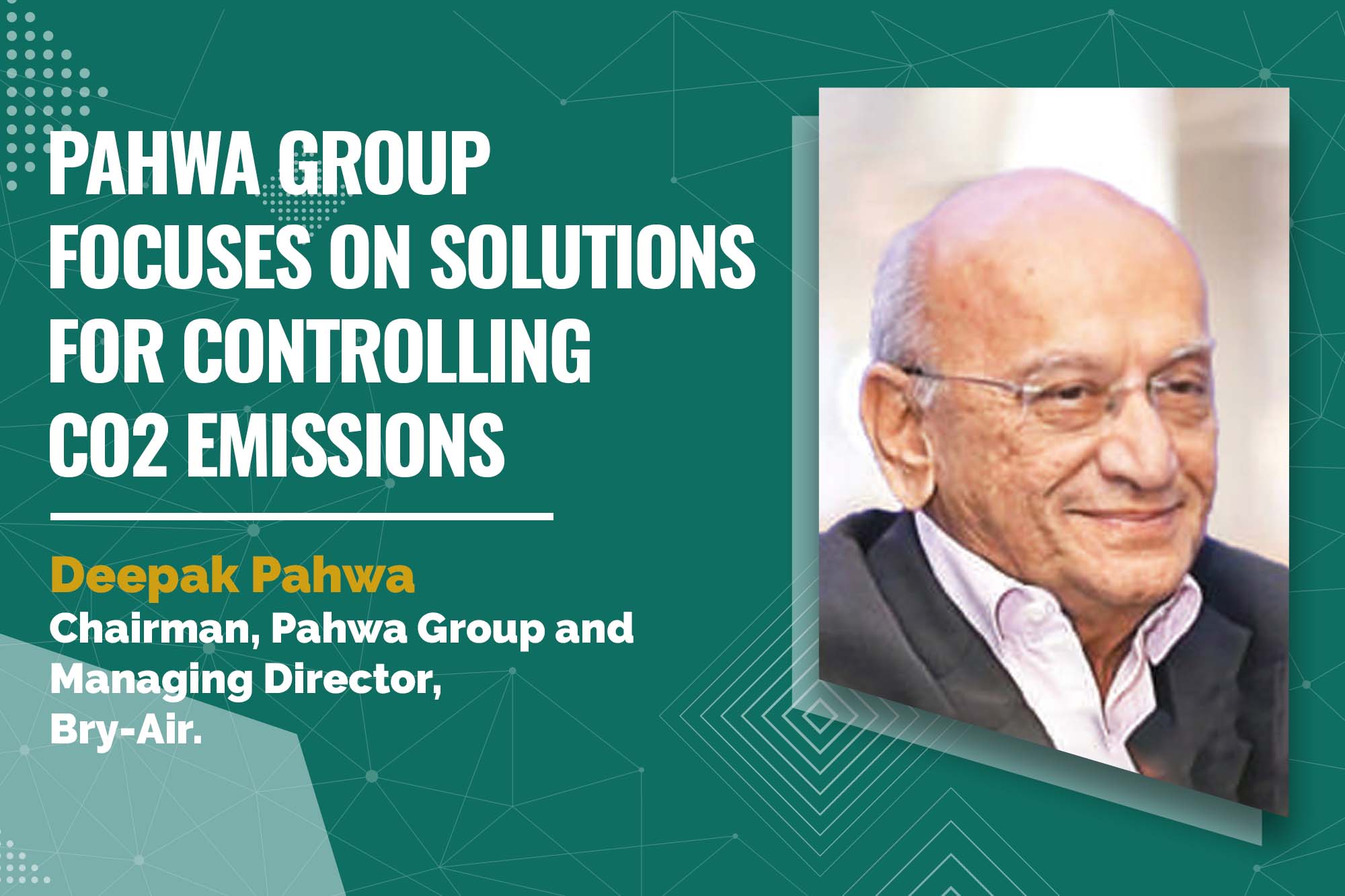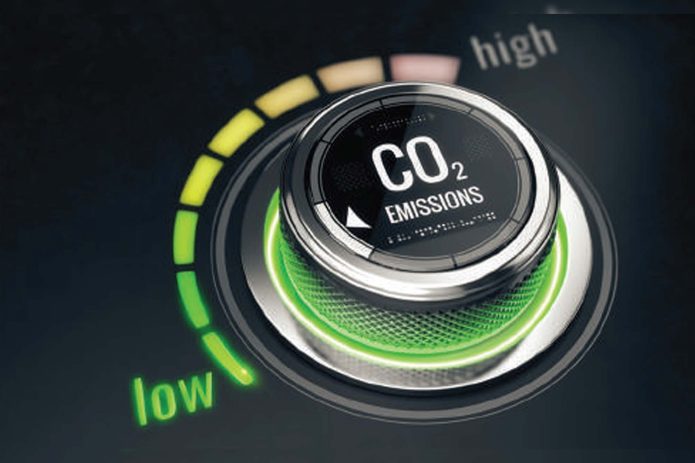 Pahwa Group, led by Deepak Pahwa, pioneers environmental control with AI, IoT, and Industry 4.0. With innovations like BrySmart Series Dehumidifiers and sustainable practices, the Group is at the forefront of efficient and eco-friendly solutions. While creating breakthrough products, the Group is shaping a greener and more innovative future.
Pahwa Group, led by Deepak Pahwa, pioneers environmental control with AI, IoT, and Industry 4.0. With innovations like BrySmart Series Dehumidifiers and sustainable practices, the Group is at the forefront of efficient and eco-friendly solutions. While creating breakthrough products, the Group is shaping a greener and more innovative future.
How are remote monitoring and energy-efficient solutions shaping the future of the HVAC industry and its ability to control environmental conditions globally?
Looking at the breakthrough innovations shaping the HVAC industry, there is a certain degree of optimism for environment control solutions in the years to come. The industry looks forward to extensive remote monitoring integration that will allow calibration and troubleshooting issues from far-off places. By harnessing the benefits of IoT, AI, and other advanced technologies, industry players can surpass the geographical barrier and control the machines installed in any part of the world.
Facilitating the retrieval of crucial data and insights, technologies provide insight into machine behaviour within specific environmental conditions, including temperature, humidity, and other relevant factors. After conducting a comprehensive study of the gathered data and performing a detailed analysis, it becomes possible to identify and address faults efficiently. Additionally, the industry is expected to witness a substantial influence from energy-efficient solutions, emphasising a more sustainable and net-zero approach.
How do technologies such as AI and IoT contribute to the advancement of the HVAC industry, focusing on sustainability and optimised production processes?
Advanced technologies like AI and IoT play a perpetual role in elevating the HVAC sector by introducing pioneering solutions. The industry can invariably leverage sustainable practices based on IoT to enhance and optimise production processes.
An illustration is the BrySmart Series (BBS) Dehumidifiers by Bry-Air, which utilise algorithms like BFD (Bidirectional Forwarding Detection) and VFD (Variable Frequency Drive) to adjust parameters in real-time dynamically. This consistently contributes to improving the intuitive features of the product, with a primary focus on improving energy efficiency and the system’s overall performance.
Similarly, all machines equipped with sensors support the automation of HVAC systems, aiming to drive efficiency. Products like BryShield for small server rooms, P95°x for the pharmaceutical industry, and DRI DOAS for fresh air ventilation feature a remote control panel system for careful regulation. This system considers various factors such as air volumes transferred from outside to inside, outdoor and indoor air temperatures, and the actual condition of the rotor used in the system. These products use IoT to access valuable information, facilitating regular monitoring of parts and systems that require periodic replacement. In the long term, this also assists in predictive maintenance.

How does integrating advanced technologies in the HVACR industry contribute to a sustainable supply chain and efficiency?
Incorporating Industry 4.0 into the HVACR industry has been immensely transforming it. Advanced technologies like AI, AR, IoT, cloud computing, and robotics are pivotal in connecting HVAC systems. This integration facilitates seamless process automation, allowing efficient system control through remote monitoring. Simultaneously, these technologies optimise energy use, effectively minimising the wastage of resources.
Our Low Dew Point Dehumidifiers (LDP) are energy-efficient equipment designed for minimal energy consumption, reducing operational costs in the Li-ion battery manufacturing process. Similarly, P95°x, tailored for the pharmaceutical industry, champions huge energy savings through regeneration at just 95°C.
By incorporating sustainable practices, one of our DRI facilities in Manesar has received Net Zero Building Certification for its ability to optimise energy utilisation through effective reduction, reuse, and recycling processes. Committed to a greener future, the building is equipped to minimise its carbon footprint. The HVAC and design elements within the building are aligned to consume less energy. Recognised by prominent green building certification agencies such as ASSOCHAM, ECBC, LEED, and the Indian Green Building Council, the plant has been honoured as a Platinum Certified Green Factory, adhering to guidelines outlined by these organisations.
How does the Pahwa Group’s proactive approach contribute to its leadership in delivering innovative environmental control solutions?
As a frontrunner in delivering innovative environmental control solutions across various industries, the Pahwa Group consistently maintains a proactive approach to stay ahead of the technological curve. Harbouring a futuristic vision, the Group continuously works towards anticipating the upcoming trends beforehand to innovate and align strategies accordingly. Focused on a forward-looking vision, the Group actively anticipates emerging trends to innovate and align strategies accordingly, ensuring preparedness to meet the diverse needs of customers and industries.
Similarly, the Group has previously developed Low Dew Point Dehumidifiers (LDP) under Bry-Air to ace the entire Li-ion battery cell manufacturing process with energy-efficient dehumidification solutions. Similarly, the P95°x, specifically designed for the pharmaceutical industry, achieves substantial energy savings exceeding 30 percent during various processes.
Carrying forward the innovative momentum, the Pahwa Group is diligently working on the revolutionary Air Water Generator (AWG) concept to address global water scarcity issues. Additionally, the Group is developing an NMP recovery system to facilitate the recovery and recycling of harmful NMP, reducing its release into the atmosphere from calendering processes in anode manufacturing. The Group aims to expand and diversify its energy-efficient and sustainable battery manufacturing offerings with these breakthrough products.
Along with this, the Group has also been actively involved in Carbon Capture technology, targeting the removal of carbon dioxide from emitting industries, vehicles, controlled environments, and the atmosphere. Collaborative efforts between Bry-Air and DRI focus on creating climate-intelligent buildings that minimise carbon emissions by using novel materials, contributing to reducing greenhouse gases.




